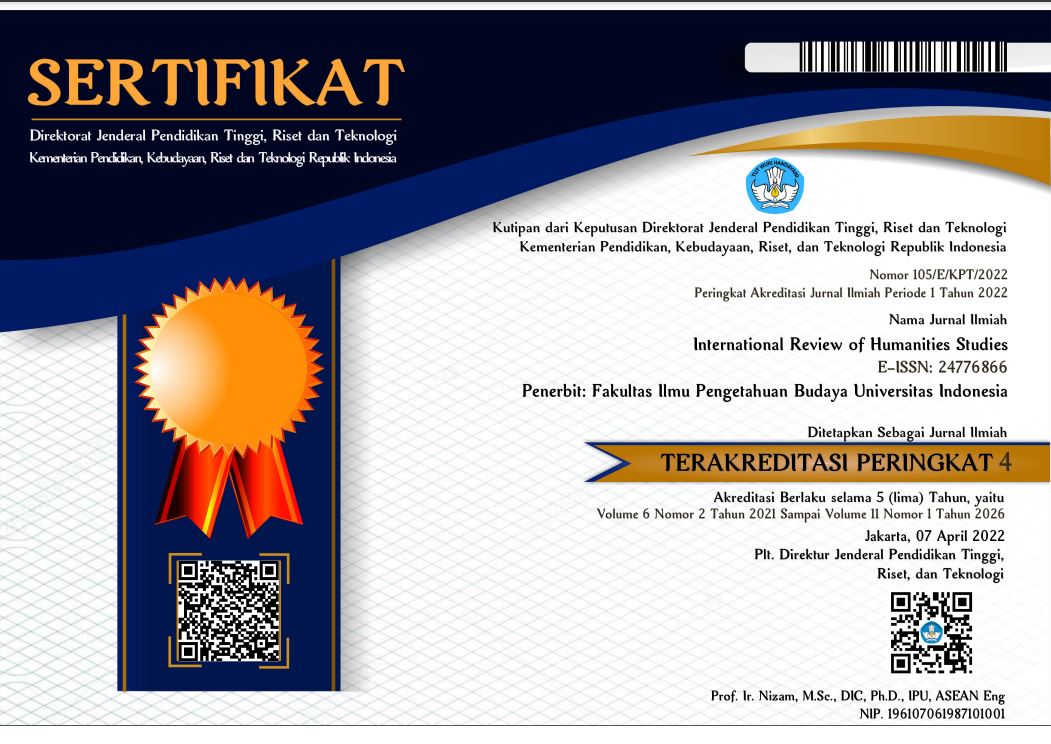International Review of Humanities Studies

Abstract
Islam is often regarded as a religion that teaches anthropocentrism through the concept of the caliph in which humans occupy a central position on earth. However, the concept of the caliph itself is a complex concept where the special status of humans always implies a moral obligation. Through alternative explanatory methods and critical reflection, the authors try to clarify the concept of the caliph and show the teachings of Islam that are environmentally friendly through the thought of Seyyed Hossein Nasr. Philosophy and environmental ethics of Nasr have two major projects, namely the resacralization of nature and the clarification of the concept of the caliph through Insan Kamil. For Nasr, man has the ability to control nature, and therefore he must increase his spirituality in the light of monotheism to understand nature holistically. A holistic understanding of nature opens the awareness that humans and nature have intimate, anthropocosmic relationships in which both share the same archetype. The Islamic environmental ethics approach of Nasr seeks to show that Islamic teachings maintain human and natural values without reducing one of the two. The conclusions in this paper show that Islam is compatible with environmental ethics insofar as the interpretation is aimed at this. Islam teaches respect for nature since the concept of the caliph shows that humans have responsibilities and intimate relationships with their environment.
References
Abu Sway, M. (1998). Towards an Islamic Jurisprudence of the Environment: Fiqh al-Bi'ah fil-Islam. 2 April, 2019. http://environment-ecology.com/religion-and-ecology/487-towards-an-islamic-jurisprudence-of-the-environment-.html.
Afrasiabi, Kaveh. (2003). Toward an Islamic Ecotheology, Foltz, R. C (ed.). Islam and Ecology: A Bestowed Trust, 281-298. 20 Agustus, 2019. Cambridge: Harvard University Press.
Afzaal, A. (2012). Disenchantment and the Environmental Crisis: Lynn White Jr., Max Weber, and Muhammad Iqbal. Worldviews, 239-262. 11 November, 2018. https://www.jstor.org/stable/43809778.
Al-Quran. (2019). Kementerian Agama. https://quran.kemenag.go.id.
Baggini, Julian, dan Peter S. Fosl. (2010). Philosopher’s Toolkit. Oxford: Blackwell.
Brown, C. S. (2003). The Real and the Good: Phenomenology and the Possibility of an Axiological Rationality. Brown, C. S. dan Ted Toadvine (ed.). Eco-Phenomenology: Back to the Earth Itself. New York: State University of New York Press.
Chittick, W. C. (2001). The Anthropocosmic Vision of Islamic Thought. Iqbal Review, 59-84. 15 November, 2018. dari http://www.iqbalcyberlibrary.net/pdf/IRE-APR-2001.pdf.
Eliade, M. (1958). Patterns in Comparative Religion. New York: Sheed & Ward, Inc.
Foltz, R. C. (2000). Is There An Islamic Environmentalism? Environmental Ethics, 63-72. 26 April, 2019. https://www.researchgate.net/publication/271167064_Is_There_an_Islamic_Environmentalism.
Jenkins, W. (2005). Islamic Law and Environmental Ethics: How Jurisprudence (“Usul al-Fiqh”) Mobilizes Practical Reform. Worldviews, 338-364. 3 November, 2018. https://www.jstor.org/stable/43809311.
Kula, Erhun. (2014). Islamic Ethics towards Environmental Protection, Afro Eurasian Studies Journal, 34-45.
Leopold, A. (1949). A Sand County Almanac. London: Oxford University Press.
Mickey, S. (2007). Contributions to Anthropocosmic Environmental Ethics. Worldviews, 226-247. 2 November, 2018. Diambil kembali dari https://www.jstor.org/stable/43809353.
Nasr, S. H. (1981). Islamic Life and Thought. Albany: State University of New York.
Nasr, S. H. (1968). Man and Nature: The Spiritual Crisis in Modern Man. London: George Allen & Unwin.
Nasr, S. H. (2007). One God. Chittick, W. (ed.). The Essential Seyyed Hossein Nasr. New York: State University of New York Press.
Nasr, S. H. (1998). Sacred Science and the Environmental Crisis: An Islamic Perspective. Haleem, H. A (ed.). Islam and the Environment, 118-137. London: Ta-Ha Publishers Ltd.
Nasr, S. H. (2007). The Integration of the Soul. Chittick, W. (ed.). The Essential Seyyed Hossein Nasr. New York: State University of New York Press.
Nasr, S. H. (2007). The Nature of Man. Chittick, W. (ed.). The Essential Seyyed Hossein Nasr.
Recommended Citation
Nugraha, Aulia Rahman and Asnawi, Naupal
(2019)
"DIALOGUE BETWEEN ISLAM AND ENVIRONTMENTAL ETHICS THROUGH THE SEYYED HOSSEIN NASR THOUGHT,"
International Review of Humanities Studies: Vol. 4:
No.
3, Article 2.
Available at:
https://scholarhub.ui.ac.id/irhs/vol4/iss3/2
Included in
Arabic Language and Literature Commons, Arabic Studies Commons, Feminist, Gender, and Sexuality Studies Commons, Islamic Studies Commons, Life Sciences Commons, Philosophy Commons, Social and Behavioral Sciences Commons


